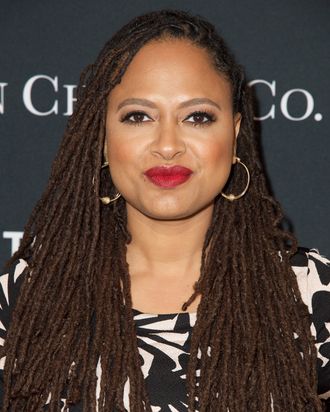
The recent excitement over the Nate Parker–directed film The Birth of a Nation has many wondering if we’ll finally begin to see equivalent accolades for diverse films in Hollywood, as compared to their very white counterparts through history. And if this sea change is happening, how can we continue to hold Hollywood accountable? New York Times film critic Manohla Dargis suggests that in addition to a Bechdel test, we might devise a comparable test for racial diversity in film. Writing about this year’s Sundance Film Festival, Dargis notes that several selections passed “what might be called the DuVernay test, in which African-Americans and other minorities have fully realized lives rather than serve as scenery in white stories.” A start, to say the least.
After seeing her name used for this new measure of complexity of diverse characters in film, DuVernay tweeted, “Wow. Floored. What a lovely cinematic idea to embrace. What a thrill to be associated with it. Absolutely wonderful.” Once the Bechdel test gained notoriety, Alison Bechdel said of her namesake, “I feel sort of funny about that whole thing because it wasn’t like I said, ‘This is the Bechdel test, and now you must follow it.’ It somehow just got attached to me.” Will the DuVernay test similarly begin to spiral until it becomes part of our cultural lexicon? Perhaps not until it’s formula is cemented: A few people have begun to suggest tweaks and updates to the idea in order to cultivate greater accountability.
At The Guardian, Nadia Latif and Leila Latif suggest a series of five questions: “Are there two named characters of colour? Do they have dialogue? Are they not romantically involved with one another? Do they have any dialogue that isn’t comforting or supporting a white character? Is one of them definitely not magic?” Nikesh Shukla similarly suggested a Bechdel-esque test where “two main characters who are people of colour talk to each other without mentioning their race.”
The Bechdel test may be a largely simplified standard by which to measure any art, sure, but having both could serve to do better than the little that is being done now to improve diversity in film. And, for what it’s worth: In 2014, FiveThirtyEight found that movies that passed the Bechdel test performed better than those that didn’t.




